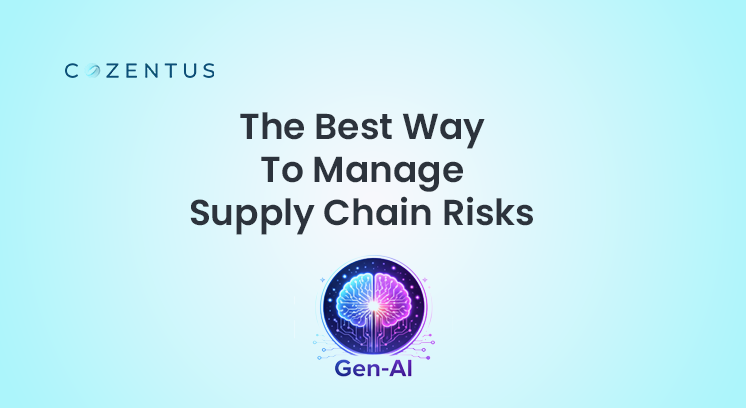Supply Chain Management (SCM) Solutions are vital to the success of any organization. These solutions can streamline operations, reduce costs, and improve customer satisfaction. However, ensuring that these solutions are functioning correctly is critical. In today's fast-paced business world, companies must ensure that their supply chain management software solutions are reliable and effective. One way to achieve this is through outsourcing testing for supply chain operations. This article will explore why outsourcing testing is beneficial and provide a checklist of best practices for testing in logistics applications.
Why Outsource Testing for Supply Chain Operations?
Supply chain management solutions are complex; testing them can be time-consuming and expensive. This process requires specialised skills and knowledge, which may need to be more readily available within the organization. Outsourcing testing for supply chain operations can help companies address these challenges and reap several benefits.
- Access to Specialised Expertise
Outsourcing testing for supply chain operations provides companies with access to specialized expertise. An experienced testing team can provide insights and suggestions that may have yet to be apparent to the company's internal team. According to a survey conducted by Accenture, 63% of companies outsource their IT testing activities to access specialized expertise.
- Cost-Effective Solution
Outsourcing testing for supply chain operations can be more cost-effective than handling it in-house. According to a report by the Everest Group, outsourcing testing activities can reduce the total cost of ownership by up to 50%. An experienced testing team can complete the testing more efficiently and effectively, reducing the time and resources required. Additionally, outsourcing allows companies to avoid the cost of hiring and training internal testing teams.
- Improved Testing Quality
Outsourcing testing for supply chain operations can help improve the quality of testing. External testing teams often have established processes and procedures for testing, ensuring that all scenarios are tested thoroughly. Additionally, outsourcing testing can help reduce the risk of bias in testing, as an external team will approach the testing from a fresh perspective.
- Reduced Risk
Supply chain management solutions play a critical role in a company's operations. Any issues or errors in the software can have severe consequences, including lost revenue, reduced customer satisfaction, and damage to the company's reputation. Outsourcing testing can reduce the risk of these issues by identifying potential problems before they impact operations.
Best Practices/Checklist to Follow for Testing in Logistics Applications
Outsourcing testing for supply chain operations can be a great solution. It is essential, however, that the testing be carried out properly.
Checklists and recommended practices for testing logistics apps are provided below.
- Develop a Comprehensive Testing Strategy
Developing a comprehensive testing strategy is essential for testing logistics applications. The strategy should include test scenarios, test data, and testing procedures. The testing strategy should cover both functional and non-functional requirements.
- Conduct Regression Testing
Regression testing is essential for logistics applications as changes to the software can impact other parts of the system. Regression testing ensures that the software continues functioning correctly after changes are made.
- Test Performance
Logistics applications require high-performance levels to ensure that operations run smoothly. Testing performance is critical to identifying any bottlenecks or issues impacting performance.
- Ensure Data Integrity
Data integrity is essential for logistics applications. Any data discrepancies can result in incorrect inventory management, incorrect orders, and delayed shipments. Testing should include verifying data accuracy and consistency across the system.
- Test Across Different Environments
Logistics applications can be complex, with multiple components and dependencies. Testing the application across different environments, including development, testing, and production environments, is critical.
- Conduct User Acceptance Testing
User acceptance testing (UAT) is essential to ensure the software meets the requirements of the end-users. UAT should involve end-users testing the software
Bottom Line
Outsourcing testing for supply chain operations can provide companies access to specialized expertise, a cost-effective solution, improved testing quality, and reduced risk. However, following best practices and checklists is essential to ensure that testing is conducted effectively.
At Cozentus, we understand the importance of supply chain management solutions and their critical role in a company's operations. We provide comprehensive testing services for logistics applications, including performance testing, regression testing, user acceptance testing, and more. Our experienced team of testers ensures that your supply chain management software solutions are reliable, effective, and meet your end-user's requirements. Contact us now to discuss your supply chain management needs and learn more about our testing services.
Recent Post
Subscribe to our newsletter
Stay updated on latest trends and news in the supply chain and logistics industry








